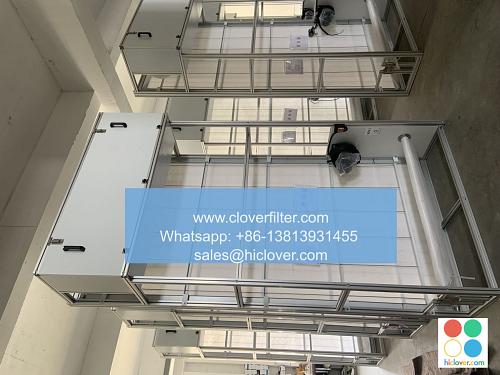Air Filter Production: Compliance with US Environmental Regulations

The production of air filters is a critical industry that plays a significant role in maintaining good indoor and outdoor air quality. As the demand for clean air continues to rise, air filter manufacturers must ensure that their products comply with US environmental regulations. In this article, we will delve into the world of air filter production, highlighting the importance of compliance with environmental regulations, air quality standards, and emission control. We will also explore the various application areas of air filters, including industrial, commercial, and residential settings.
Overview of US Environmental Regulations
The US Environmental Protection Agency (EPA) sets and enforces air quality standards and emission control regulations to protect public health and the environment. Air filter manufacturers must comply with these regulations, which include the Clean Air Act and the National Emission Standards for Hazardous Air Pollutants (NESHAP). These regulations dictate the minimum requirements for air filter performance, including efficiency, pressure drop, and emission reduction.
Air Filter Production Process
The production of air filters involves several stages, including design, testing, and manufacturing. Air filter manufacturers use various materials, such as fiberglass, polyester, and activated carbon, to create filters that meet the required air quality standards. The production process must be carefully controlled to ensure that the final product meets the emission control regulations and environmental standards.
Application Areas of Air Filters
Air filters have a wide range of application areas, including:
* Industrial settings, such as power plants, chemical plants, and manufacturing facilities
* Commercial settings, such as office buildings, hospitals, and shopping malls
* Residential settings, such as homes and apartments
* Transportation systems, such as cars, trucks, and airplanes
In each of these application areas, air filters play a critical role in maintaining good air quality and reducing emissions. By using high-efficiency air filters, individuals and organizations can help to reduce pollution, improve public health, and protect the environment.
Conclusion
In conclusion, air filter production is a critical industry that must comply with US environmental regulations. By understanding the air quality standards, emission control regulations, and environmental standards, air filter manufacturers can produce high-quality products that meet the needs of various application areas. As the demand for clean air continues to rise, the importance of compliance with environmental regulations will only continue to grow. By highlighting the various application areas of air filters, we can appreciate the significance of this industry in maintaining good air quality and reducing emissions. It looks like you’re ready to start a conversation or get help with something, but you haven’t specified what’s on your mind yet. Could you please provide more details or clarify how I can assist you today?

